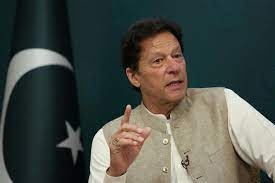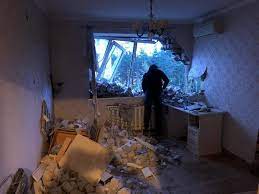The Complex Relationship Between the State, Muslims, and Recent Unrest in France
The threat of rioting in the underprivileged suburbs of its main cities has returned to France. It is crucial to understand the social and political settings of these demonstrations as well as the ensuing criminal actions of looting. Although the French government has long pursued a number of anti-Muslim measures, such as outlawing the headscarf, it is difficult to connect their opposition to current acts on the streets of French cities. It is also true that there are serious issues with prejudice in French society. Discrimination is pervasive and is based on a person’s religion, ethnic background, and even where they reside. Numerous studies have shown that living in a substandard neighborhood and having an Arabic or African name significantly lower your chances of getting chosen for a job interview. Additionally, if you are an Arabic person of African descent living in France, you are more likely to reside in substandard homes in isolated housing estates and attend underperforming schools, all of which limit your opportunities for social mobility. Indeed, researchers contend that these regions represent Europe’s worst cases of marginalization due to their deplorable socioeconomic circumstances and remote location.
The connection between these elements and the present upheaval, however, is more nuanced than it would initially seem. Inaccurate connections are sometimes drawn between the fact that many of the protesters in France are of Muslim North African descent and their dissatisfaction with the country’s frequently Islamophobic policies and socioeconomic issues like discrimination and subpar housing. The distinction between them is not as obvious as it first seems, and Muslims in France have a variety of views on the current upheaval.
A lot has been said about the prejudice that people of non-white origin suffer in France when they are faced by the police, which is empirically well documented. Nahel, the adolescent who was slain by police, was of Muslim North African descent. But the issues with police violence in France are considerably more pervasive and transcend racial and cultural boundaries. While having a black or Arabic ancestry does increase the likelihood of becoming a victim of police violence, white French protesters were the ones being beaten with truncheons on the streets of Paris when the Council of Europe issued a warning about police brutality against demonstrators in March 2023. They were protesting Macron’s pension reforms. Thus, it is necessary to review France’s whole police ideology.
The way the police are seen now in France has developed historically from policing for the people to policing for the state and defending the state from the people. The idea of police in nations like the United Kingdom, where policing is considered as carried out with the agreement of the people and for them rather than against them, contrasts from this. Although policing in the UK has issues and has been the focus of comparable conflicts, such as the 2011 riots after the police shooting of Mark Duggan, this conceptual distinction makes it more feasible to have a dialogue about policing reform. The tenacity of the French police union’s viewpoint is evident in the statement they released, which framed the present situation as the police being on the front lines of a conflict with barbaric hoards.
This is arguably best shown by the criticisms of the police that I have encountered in Paris, Lyon, and Marseille while doing my in-depth study. Residents of such high-rise estates claim that the police are not there to react to allegations of crimes, such as home invasions, and that previous administrations have shut down the “proximity police” stations in such locations. Residents lamented the loss of their intimate friendships with the neighborhood police officers, saying that they were the closest France has ever been to a sort of community policing. They have also grumbled about how well-armed and aggressive the cops are when they do show there.
Additionally, there would be a wide range of views among French Muslims about these protests. The state has made it illegal to collect statistics on race, religion, or ethnicity in France, so it is impossible to say with accuracy how many Muslims or people of black origin there are in the French population or in specific occupations. This presents a challenge when discussing the French context in this regard.
However, scholars have long contended that French Muslims are disproportionately represented in the army and police forces of France, and that they would have been on the streets of French towns in recent days battling to restore law and order. Many French Muslims have died in terrorist attacks in France, including those in Paris in 2015 and Nice in 2016, while out with friends or taking their kids to see the Bastille Day fireworks. A French Muslim policeman named Ahmed Merabet was a victim of jihadist violence during the Charlie Hebdo attacks.
Images and videos of the violence that is taking place in French cities have been widely shared on social media during this present crisis, providing a picture of the situation there. The riots and the heinous damage of property and public buildings during these disturbances, however, have drawn widespread condemnation from French Muslims on social media.
I have lived in Marseille for many years and am familiar with many of the areas and companies that were impacted by the riots. Many Muslim owners of small businesses and employees of large stores like Sephora who woke up to discover their belongings gone. Social media has also been used by others to denounce the turmoil and demand that the government adopt more security measures to safeguard property. others even voiced worry that they would be able to reopen their enterprises after suffering such severe losses. These instances highlight how different Muslims in France are in terms of their religious affiliation, ethnicity, social status, and age, and how similarly diverse they are in terms of their beliefs on a wide variety of subjects.
It is therefore extremely possible—and very common—to oppose rioters’ unlawful behavior while supporting the French state’s anti-Muslim policies over things like the headscarf ban. Separating protesters from those who constantly take advantage of the collapse of law and order for financial gain is crucial in this situation. People who were caught on camera in Marseille using power tools to remove cash from ATMs or clearing out a Volkswagen auto dealership of its new vehicles weren’t robbing for political gain; they were robbing for financial gain.
It is thus impossible to argue that all French Muslims support recent events, despite the fact that the French state has adopted Islamophobic policies and that France has serious issues with discrimination and socioeconomic marginalization. With these people, who have been in France for three or four generations, it is likewise impossible to discuss a general issue with integration. Along with losing their businesses to the rioters, many French Muslims are also members of the French police forces who were sent out into the streets to put an end to protests. In reality, my time in France has convinced me that the great majority of French Muslims have the same desires as their counterparts who are white. They want to create enterprises, have families, have decent careers, and get education. As a result, even while many people oppose government actions and police violence, this does not always mean that they support civil disturbance or the destruction of public facilities like schools or libraries, which they regularly use themselves.







